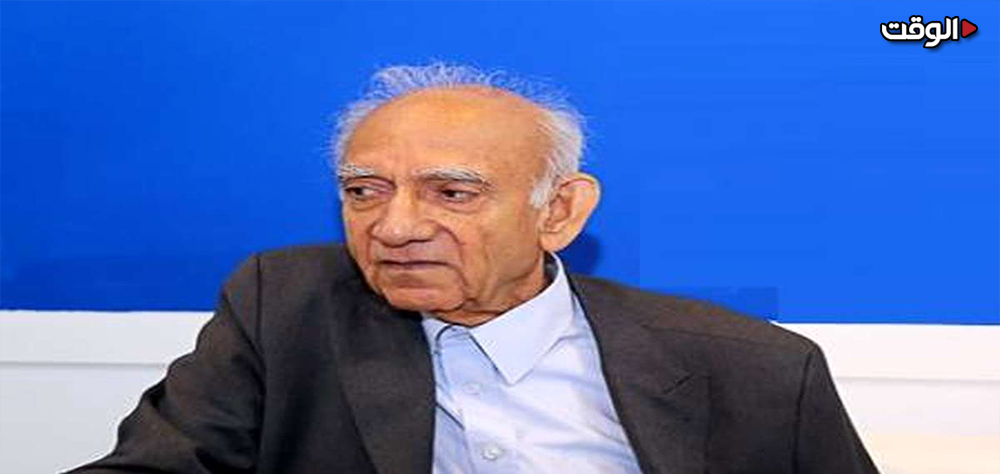Alwaght- With the end of election marathon in Pakistan, the results proved to be a surprise as the independent candidates affiliated with ex-Prime Minister Imran Khan managed to win a large number of seats. Pakistsn’s Election Commission announced the final result on Sunday. According to its statement, independent candidates, much of whom are supported by the ex-PM Imran Khan, managed to win 102 parliamentary seats in general elections.
Pakistan Muslim League-N party, headed by ex-PM Nawaz Sharif ranked second with 75 seats. And the Pakistan Peoples Party, led by current foreign minister Bilawal Bhutto Zardari, come third with 54 seats.
This is the first time in the history of Pakistan that independent candidates, most of whom backing the ousted PM Imran Khan, are scoring high in the parliamentary elections. However, analysts argue that forming a cabinet by the victorious party, namely Imran Khan-led Tahreek-e-Insaf, looks unattainable.
According to to observers, the election results have complicated the situation in Pakistan, and like the past months, the they are poised to inflame the already tumultuous conditions in the country.
For details of the election and also shedding light on the cabinet formation process, Alwaght talked to senior Pakistan and Indian Peninsula affairs expert Pir Mohammad Mollazehi.
Asked why Tahreek-e-Insaf gained public support despite political crackdown, Mr Mollazehi said that the difference that occurred between the army and Tahreek-e-Insaf motivated an attack by people on army headquarters in Rawalpindi for the first time. The army, as a result, decided to fully eliminate the party. But the society’s reaction was different in various areas. Three tribal areas negatively reacted to the army decision and supported the party. What happened in the recent elections was that in three constituencies of Punjab state that were strongholds of the Muslim league, a serious challenge emerged between Muslim League and Tahreek-e-Insaf
Mr Mollazehi added that people were aware that former Prime Minister Nawaz Sharif struck a deal with the army. For this reason, an important part of Punjab moved to support the Tehreek-e-Insaf party. This played into the hands of Tehreek. In the Khyber Pakhtunkhwa region, both the representatives of the National Assembly and the local representatives supported the Tahreek-e-Insaf. In the state of Balochistan, no one secured the majority in either the national or local parliament. But what happened in the state of Balochistan was that the armed groups in this state boycotted the elections, and this greatly reduced the number of votes.
The part that backed the government, mainly the army commanders and land owners, lost their position. The army tried in Gwadar city, which is an important port where China massively invested, name a businessman and drugs mafia leader from Gorgij ethnic group who is not originally Pakistani and, indeed, not known by people. They engineered the elections there and nullified ballots in favor of the rival of Tahreek-e-Insaf. Their measures gave rise to this man in elections, causing serious tensions in Balochistan state.
The political expert highlighted the tense atmosphere of Pakistsn’s politics, adding that there are tensions in Panjub between supporters of Muslim League and Tahreek-e-Insaf, and there is risk of armed clashes. A couple of days ago, he went on, two supporters of Tahreek-e-Insaf and Muslim League were killed. So, the conditions are complicated. The army is in trouble forming next government and tries to forge a coalition between Peoples Party and Muslim League.
Mr Mollazehi held that there is a problem and it is that Zardari is himself seeking premiership while the army and Muslim League have agreed on Nawaz Sharif for the post. Currently, Zardari and former prime minister Shahbaz Sharif are seeking a solution to the prime minister post challenge. Muslim League insists on Nawaz Sharif, and this causes difference between the two parties.
Mollazehi pointed to the efforts of Tahreek-e-Insaf for return to power, adding that Tahreek-e-Insaf claims power and claims that there was fraud in the elections. It has filed suits with the Supreme Court and challenged the Muslim League. It is unclear whether this election will lead to outcomes favorable to the army or to public rebellion that will push the army to take the power. A fifth coup may be on the way.
The political expert ruled out possible formation of a cabinet by Tahreek-e-Insaf. He noted that it is certain that the army will not allow Imran Khan to return to power. If it does, or allow it to coalesce with other parties, the parliament will order Iman Khan free from prison and name him as prime minister. This means full defeat of the army and the latter will not yield to this.
Mollazehi believes that Nawaz Sharif joined the election after a secret deal with the army. He cleared his and his family’s charges of financial abuses. He already served three times as prime minister and each time the army ousted him. This time, a deal between Nawaz Sharif’s younger brother Shahbaz Sharif and the army could bring Nawaz home from London. Now the question is that whether or not this deal will materialize. If Imran Khan, especially in Panjub, challenges cabinet formation by Nawaz Sharif and a local government by Shahbaz Sharif, the country’s political stability will be seriously compromised.
At the end, Mollazehi pointed to the activity of armed militias in Pakistan, saying that there are two problems. The first one is that these separatist groups are active in Balochistan and hold arms, but the army has not quelled them as it was expected. The second one is Tahreek-e-Taliban movement which strives to make Pakistan part of ISIS terrorist group’s caliphate. They have foothold in tribal areas and even did not allow the elections to be fully held in these areas.



























